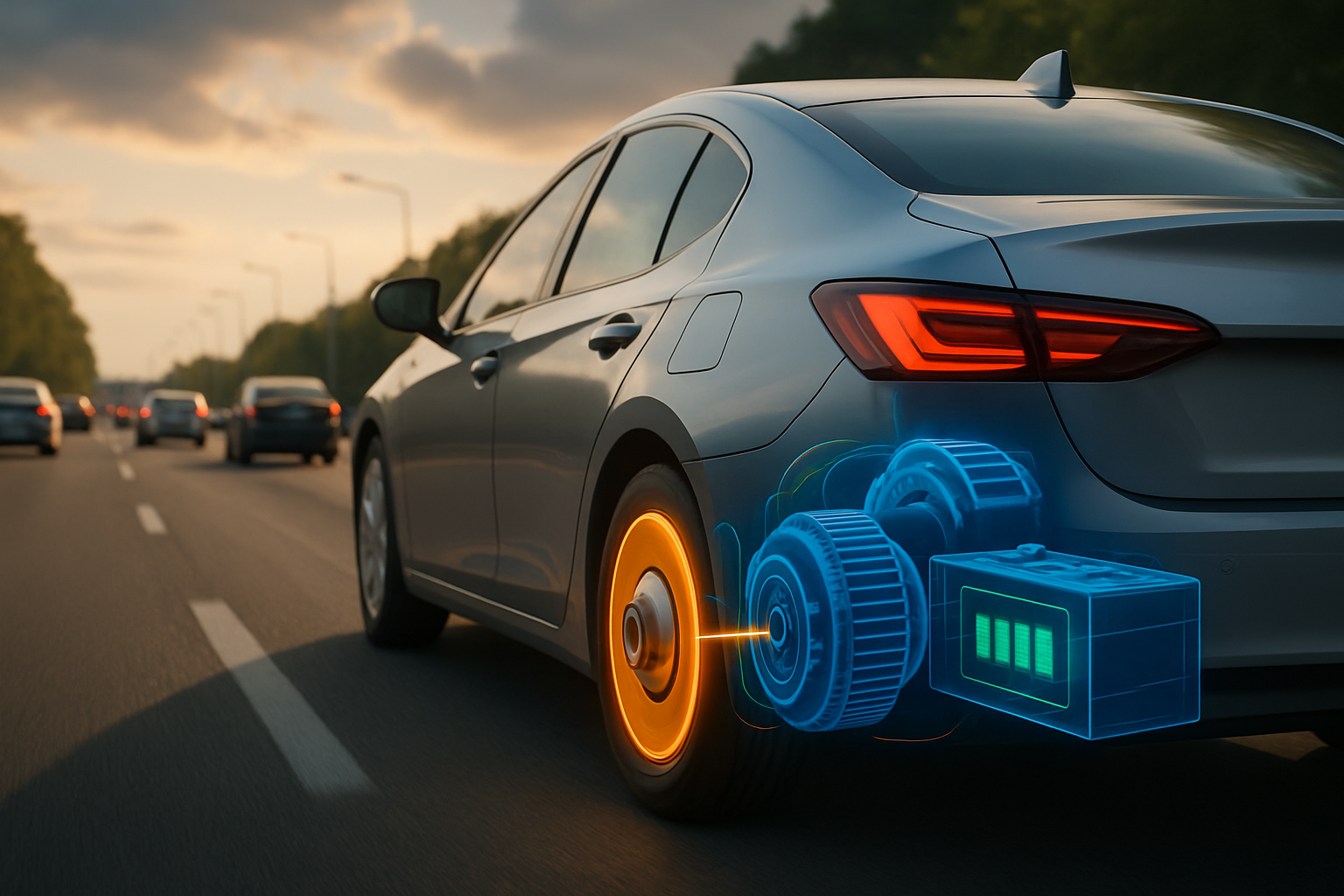Synthetic Fuels: The Future of Internal Combustion Engines
The roar of a high-performance engine, the distinctive smell of gasoline, and the thrill of manual shifting – these sensations have long been the hallmarks of automotive enthusiasm. But as the world grapples with environmental concerns, a groundbreaking solution is emerging that could preserve the essence of traditional motoring while dramatically reducing its carbon footprint. Enter the world of synthetic fuels, a cutting-edge technology that's poised to revolutionize the automotive landscape and breathe new life into internal combustion engines.

A Carbon-Neutral Proposition
One of the most compelling aspects of synthetic fuels is their potential for carbon neutrality. While burning these fuels still releases CO2, the carbon dioxide used in their production is effectively recycled from the atmosphere or industrial emissions. This closed-loop system means that synthetic fuels could theoretically be produced and consumed without adding new greenhouse gases to the environment. For automotive enthusiasts, this presents an exciting possibility: the chance to continue driving beloved combustion-engine vehicles without the associated guilt of contributing to climate change.
Compatibility with Existing Infrastructure
Unlike many alternative fuel solutions, synthetic fuels offer a significant advantage in terms of compatibility. These fuels can be used in existing internal combustion engines with little to no modification, meaning that the current fleet of vehicles on the road could potentially transition to a more environmentally friendly fuel without the need for widespread vehicle replacement. This compatibility extends to the existing fuel distribution infrastructure, including pipelines, tanker trucks, and filling stations, potentially allowing for a smoother and more cost-effective transition compared to other green technologies.
Performance and Efficiency Considerations
For the performance-minded driver, synthetic fuels offer intriguing possibilities. These fuels can be engineered to have specific properties, potentially leading to improved engine performance and efficiency. Some synthetic fuel formulations have demonstrated higher energy density than traditional gasoline, which could translate to increased power output and potentially better fuel economy. Additionally, the purity of synthetic fuels compared to their fossil-derived counterparts could lead to reduced engine wear and lower maintenance costs over time.
Challenges and Hurdles
Despite their promise, synthetic fuels face significant challenges on the road to widespread adoption. The primary obstacle is the energy-intensive production process, which currently makes synthetic fuels considerably more expensive than conventional fuels. Scaling up production to meet global demand would require massive investments in renewable energy infrastructure and carbon capture technology. There are also concerns about the overall efficiency of the synthetic fuel production cycle compared to direct electrification of vehicles. Critics argue that the energy used to produce synthetic fuels might be more effectively utilized by powering electric vehicles directly.
The Role of Motorsports in Development
The world of motorsports has always been a proving ground for automotive innovation, and synthetic fuels are no exception. Several high-profile racing series, including Formula 1, are exploring the use of synthetic fuels as part of their sustainability initiatives. These high-stakes environments provide valuable data on performance, reliability, and potential improvements, which can then trickle down to consumer applications. The involvement of motorsports not only accelerates technological development but also helps to generate public interest and acceptance of synthetic fuels.
Regulatory Landscape and Industry Support
As governments worldwide implement stricter emissions regulations, the automotive industry is increasingly looking to synthetic fuels as a potential solution. Several major automakers have invested in synthetic fuel research and development, seeing it as a way to extend the lifespan of their internal combustion engine technology while meeting environmental targets. However, the regulatory landscape remains complex, with different regions taking varied approaches to alternative fuel incentives and carbon pricing. The future success of synthetic fuels will depend largely on supportive policies that encourage their development and adoption.
The Path Forward
The road ahead for synthetic fuels is both promising and challenging. As production techniques improve and economies of scale come into play, the cost of these fuels is expected to decrease, making them more competitive with traditional fuels. Continued research and development may also yield breakthroughs in production efficiency and carbon capture technology, further enhancing the environmental benefits of synthetic fuels. For automotive enthusiasts and everyday drivers alike, synthetic fuels represent a tantalizing possibility: a future where the joy of driving a combustion-engine vehicle can coexist with environmental responsibility.
In conclusion, synthetic fuels stand at the intersection of tradition and innovation in the automotive world. While they may not be a silver bullet for all of the industry’s environmental challenges, they offer a compelling pathway to reduce emissions while preserving the cultural and technological legacy of the internal combustion engine. As research progresses and production scales up, synthetic fuels could play a crucial role in shaping a more sustainable automotive future – one that doesn’t require us to say goodbye to the engines we’ve come to love.





